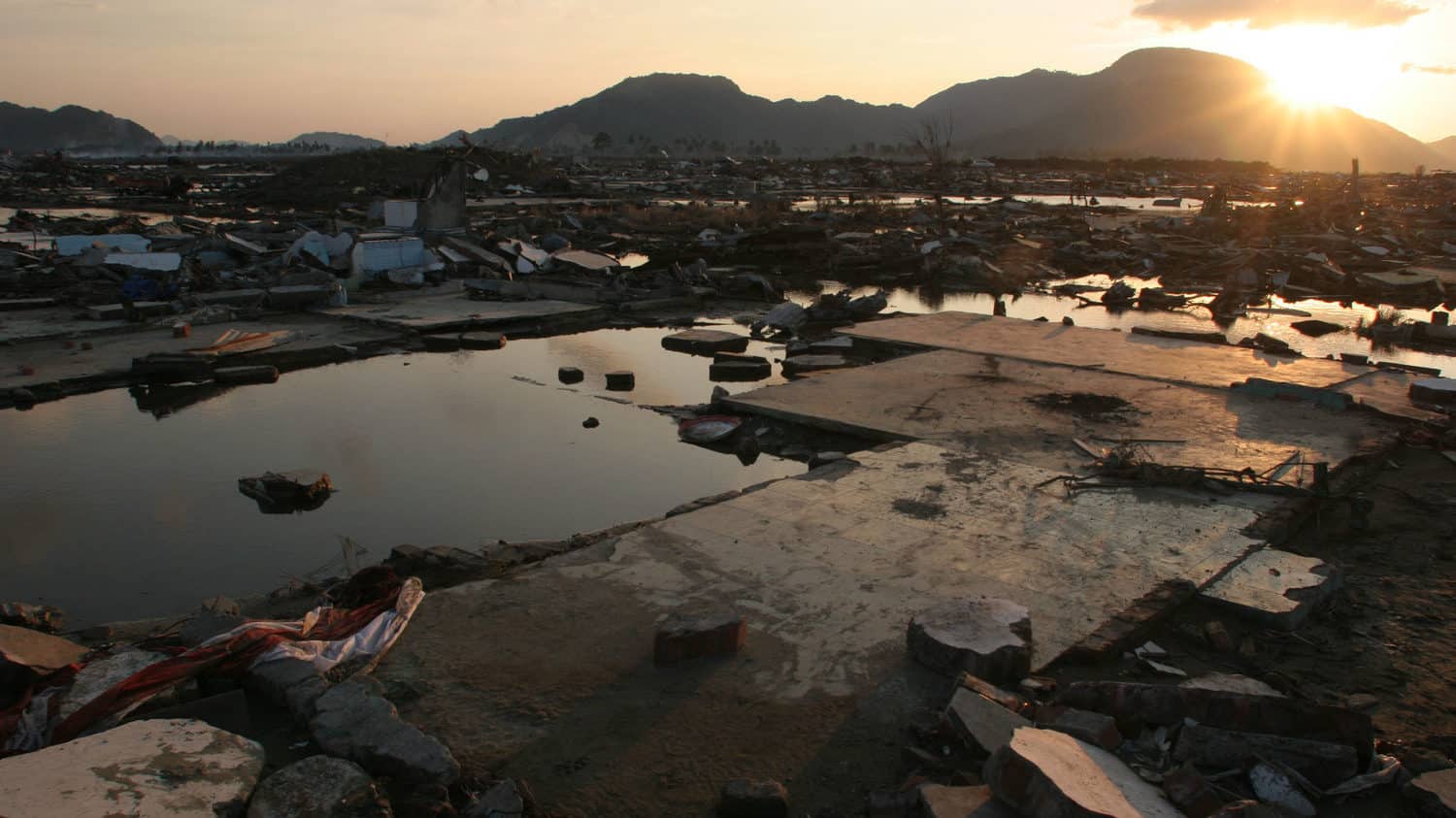
2004 EARTHQUAKE AND TSUNAMI RESPONSE
When humanitarian response teams arrived in Aceh, Indonesia, in early 2005, they were met with a scene of utter devastation. The tsunami had torn through the province and smashed everything: lives, buildings, institutions. The survivors of the disaster were focused on locating their loved ones, and finding shelter, food and medical help.
Quickly, some of those working for the response realized that most people had no idea what was going on, or what aid was available to them – and that this was seriously inhibiting their ability to make decisions about how to manage their recovery. In other words, people needed information.
Focused on this critical need, the Internews team arrived a few weeks later, carrying two suitcase radios. We helped the one surviving radio station stay on air and reach audiences outside the capital. After that, we provided equipment to damaged stations to help them get back on their feet, and funds for journalists who had lost everything. Then we set up a dedicated radio show – Peuneugah Aceh (News for Aceh), specifically to share much needed information about the response. It broadcast on 31 local stations across the affected area.
2013 REPORT: “INDONESIA: CRISIS COMMUNICATION CHANNELS”

“Indonesia: Crisis Communication Channels” is report focusing on preparedness for emergency communications for Disaster Risk Reduction. It explores communication ecologies, rather than discrete communication practices, resting primarily on three case studies: 1) Jakarta’s January 2013 floods; 2) The ongoing low-level Rokatenda volcano eruption on Palue Island in Sikka Regency, Flores, eastern Indonesia beginning late 2012; 3) Aceh’s April 2012 earthquake and tsunami warning.
The case studies were selected to examine crisis communication across a range of contexts: urban and rural; areas with extensive infrastructure and without; disaster with local and national profiles, and in locations with and without extensive preparedness efforts.
2019: INDONESIA’S START-UP ‘DISASTER NEWS AGENCY’

Internews helped fund initial start-up costs of Kabar Sulteng Bangkit, a grassroots news agency created after the Central Sulawesi tsunami in September 2018 to fill important post-disaster information needs: communicating with survivors, and holding official aid and rebuilding efforts accountable.
Kabar Sulteng Bangkit, which means “news of reviving Central Sulawesi”, was founded by journalist Yardin Hasan, who barely survived the disaster that flattened much of the Indonesian city of Palu. He leads a group of local journalists trying to hold their government to account as his city’s recovery lurches forward.
More than 4,400 people died, or are still missing, after a series of earthquakes sent tsunami waves crashing into coastal Central Sulawesi and destroyed entire neighborhoods.
“The mainstream media now tends to think the earthquake recovery efforts are over and that we’ve left the emergency period,” Yardin said. “But the recovery is long. It has to continually be given attention.”